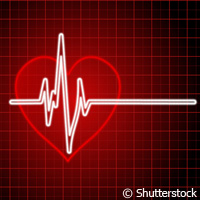Scientists say high blood pressure could raise cancer risk
Researchers in Europe have discovered that high blood pressure potentially raises the risk of developing cancer or dying from the disease. The findings were presented at the recent 2011 European Multidisciplinary Cancer Congress in Stockholm, Sweden. It was the largest study of this kind to probe the link between these two conditions. Smaller, past studies found inconsistent results in the search for a link between blood pressure and cancer. But Dr Mieke Van Hemelrijck of the Cancer Epidemiology Group at King's College London in the United Kingdom and her colleagues found that higher than normal blood pressure was statistically significantly associated with a 10% to 20% higher risk of developing cancer in men, and a higher risk of dying from the disease in both men and women. They calculated their findings by using mid-blood pressure figures with seven groups of participants in Austria, Norway and Sweden. Experts define mid-blood pressure as systolic blood pressure plus diastolic blood pressure, divided by two. The average mid-blood pressure in this study was 107 mmHg for men and 102 mmHg for women. The team split the results into five groups (or quintiles); the people with the lowest mid-blood pressure were in the first quintile, and those with the highest mid-blood pressure were in the fifth quintile. The researchers found that after an average of 12 years of follow-up (excluding the first year), 22 184 men and 14 744 women had been diagnosed with cancer, and 8 724 men and 4 525 women had died from the disease. The data show a 29% jump in the overall risk of developing any cancer between men in the lowest quintile and those in the highest. The findings also reveal that the higher the blood pressure, the greater the risk of oral, colorectal, lung, bladder and kidney cancers, and melanoma and non-melanoma skin cancers in men. While higher blood pressure in women was not statistically significantly linked to the overall risk of developing any cancer, it was connected to an increased risk of cancers of the liver, pancreas, cervix and endometrium, and melanoma. The study demonstrates that men in the fifth quintile had a 49% higher risk of dying from cancer than their peers in the first quintile. Women in the fifth quintile had a 24% higher risk compared to women in the first quintile. 'This means that we found that men with mid-blood pressure in the highest fifth had an absolute risk of developing cancer of 16% compared to an absolute risk of 13% for those with mid-blood pressure in the lowest fifth,' explains Dr Van Hemelrijck. 'Men in the highest fifth had an absolute risk of dying from cancer of 8%, compared to an absolute risk of 5% for those in the lowest; and for women, those in the highest fifth had an absolute risk of dying of 5% compared to an absolute risk of 4% in the lowest fifth,' she adds. 'Our study shows that blood pressure is a risk factor for incident cancer in men and fatal cancer in men and women. Although the relative and absolute risk estimates were rather modest, these results are important from a public health perspective since a large proportion of the population in many western countries suffers from hypertension.' It should be noted that the study could not demonstrate that blood pressure is responsible for the increased risk of cancer. 'We cannot claim that there is a causal link between high blood pressure and cancer risk, nor can we say that the cause of cancer is a factor related with high blood pressure,' Dr Van Hemelrijck explains. 'However a healthy lifestyle, including sufficient physical activity and a normal weight, has been shown to reduce the risk of several chronic diseases. For instance, high blood pressure is a known risk factor for cardiovascular disease, and our study now indicates that high blood pressure may also be a risk factor for cancer.'For more information, please visit:King's College London:http://www.kcl.ac.uk/index.aspxECCO:http://www.ecco-org.eu/
Countries
Sweden, United Kingdom



